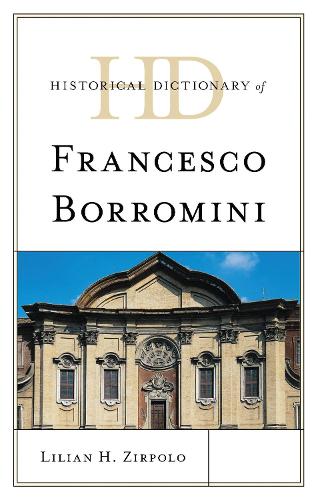
Historical Dictionary of Francesco Borromini
(Hardback)
Publishing Details
Historical Dictionary of Francesco Borromini
By (Author) Dr Lilian H. Zirpolo
Bloomsbury Publishing PLC
Rowman & Littlefield Publishers
10th July 2025
United States
Classifications
Professional and Scholarly
Non Fiction
History of art
720.92
Physical Properties
Hardback
352
Width 152mm, Height 229mm
Description
Francesco Borromini was one of the most notable architects of the 17th century, and though he fell into disfavor by the end of the following century, today he is classified as one of the most innovative architects in history. Although Borromini enjoyed a highly successful career, he was already subjected to intense criticism during his lifetime. Criticism continued well after Borrominis death, when the most often used word to assess his work was bizarre. Critics begrudged the fact that, in their view, Borromini ignored the traditional rules of architecture that had been established by the ancients and revived during the Renaissance era. They did not recognize that Borromini was indeed an avid student of both ancient and Renaissance architecture, and that he often borrowed elements from these two eras but then applied them to his structures in new and inventive ways. It was not until art historians began assessing Borrominis architecture in a sober and nonjudgmental manner in the late 19th century that he was finally given his proper place in the history of architecture. This book assesses Borrominis individual commissions following the proper scholarly methodology, as well as his biographical details, artistic development, relationship with his protectors and patrons, and external circumstances that might have determined his artistic output.
This book emphasizes the innovations Borromini introduced to the field of architecture and how these influenced later artists.
Author Bio
Lilian H. Zirpolo is the author of several books and articles on Renaissance and Baroque art. These include Historical Dictionary of Renaissance Art, Historical Dictionary of Barque Art and Architecture, and Michelangelo: A Reference Guide to His Life and Works. Her interests include art patronage and collecting, deformities and disabilities in art, and textile history. Her articles and book reviews have been published in venues such as the Gazette des Beaux-Arts, Architectura: Zeitschrift fr Geschichte der Baukunkst, Drawing, The Womans Art Journal, Seventeenth Century Journal, Augustinian Studies, Art History, Renaissance Quarterly, and Explorations in Renaissance Culture.
